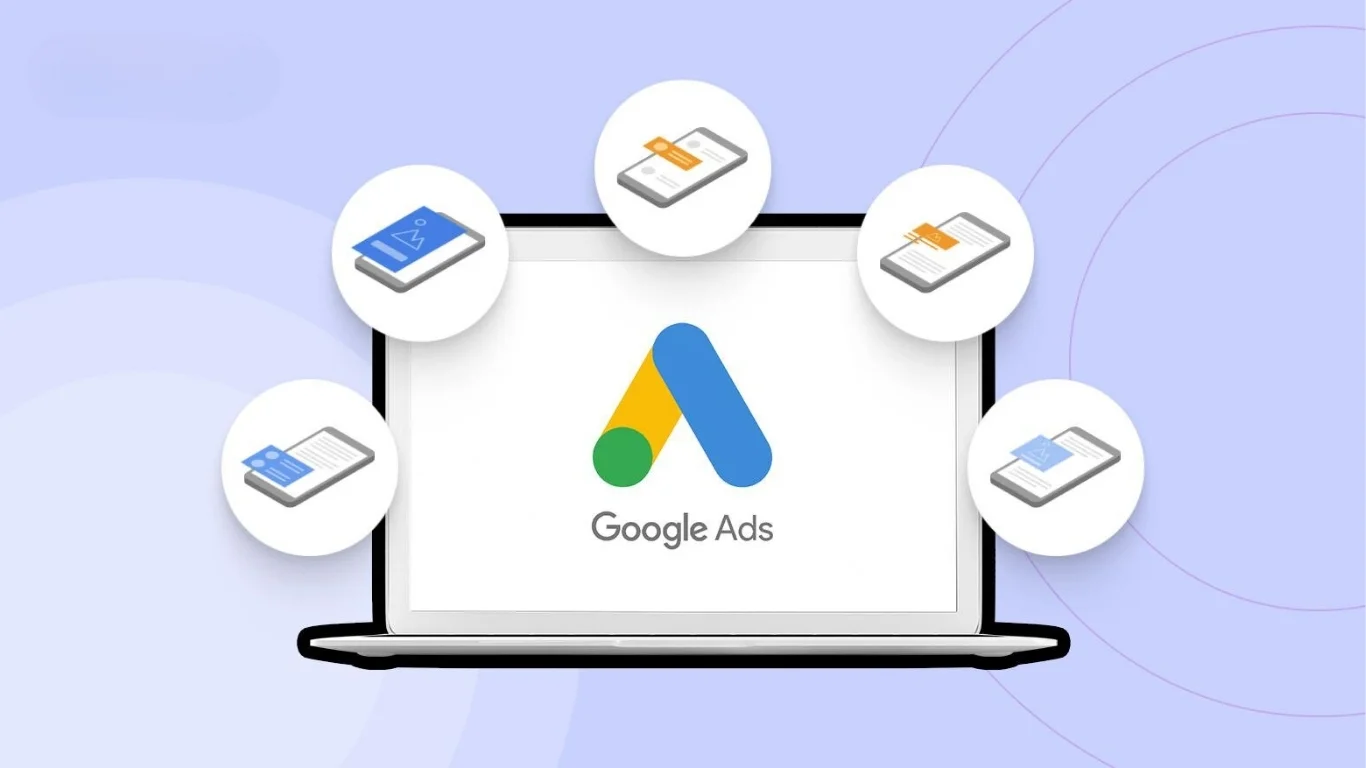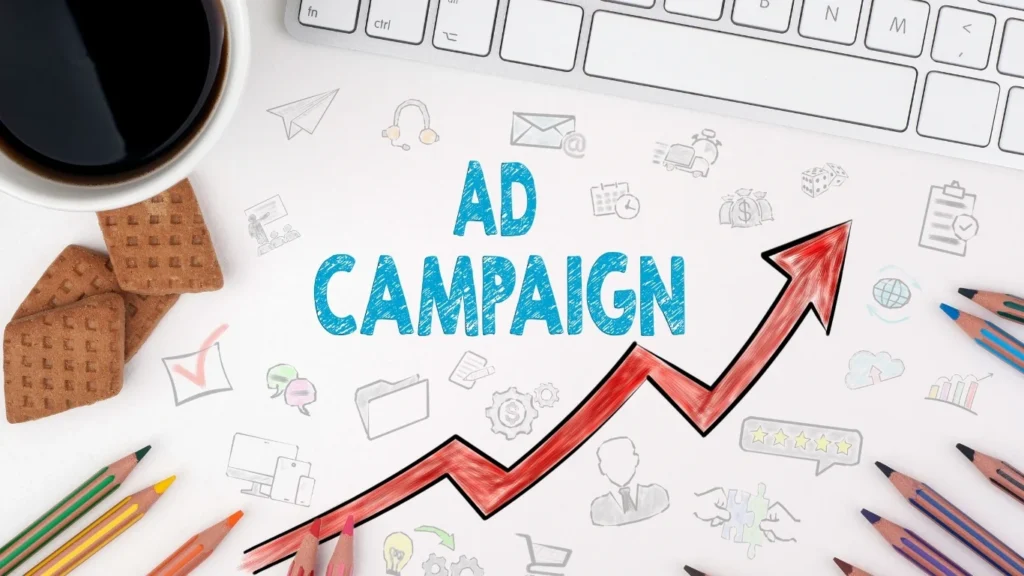
Google Ads – The Complete Guide To Take You From Zero To Hero
Welcome to Skytech! If mastering Google Ads your goal, you have landed in the right place. Resources In less than 24 hours, this guide will help make you the hero. Everything from the basics to more advanced strategies. If you are a beginner or just want to get better at setting up and managing Google Ads, this is the guide for you. Let's dive in!
Introduction to Google Ads
Google Ads- Online advertising platform with Google. Businesses use Google AdWords to create ads that appear on the top of Google search engine results pages (SERPs), YouTube, and other websites in the Google Display Network. Google Ads- Reach a large audience, increase traffic and sales.
Why Use Google Ads?
- Wide exposure- access to millions of websites through the most prolific search engine out there, Google.
- Targeted Advertising- You Can target Your Ad on Keyword, Location, Demographics and Booster
- Measurable Results- Google Ads are measurable and have in-depth analytics to monitor how your campaigns perform.
- Return on Investment- You only pay when a user clicks your ad.
This will open your Google Ads account
So before anything, you will have to make an account for Google Ads. Follow these steps-
- Open Google Ads Website- Visit ads.google.com.
- Sign In or Create an Account- You can sign in or create an account using your Google Account.
- Add Billing- Enter the billing you have to charge ads.
- Start Your First Campaign- Using the prompts, setup your first ad campaign.
Google Ads Vocabulary
First, let me explain what's gonna happen before you really take the deep dive into creating ads.
- Keywords- Words or phrases that prompt your ads to be displayed.
- Ad Groups- A collection of ads that have a set of keywords in common.
- Quality Score- The score for quality of the ads, keywords and landing page.
- CPC (Cost-Per-Click)- The price you pay for every click on your ad.
- Click-Through Rate (CTR)- The percentage of people who click on your ad in response to seeing it.
- Conversion- A desired action for users such as purchase, form fill.
Setting up Your First Google Ads Campaign
With your account good to go, it is time making the first campaign.
How to Create an Amazon Ad Campaign
Select Your Campaign Type
The search, display and shopping (video) are the various campaigns types of Google Ads. Search Campaign - We suggest the starters will start with a search campaign
Set Your Goals
What are you trying to accomplish with this campaign? They can range from anything like bringing traffic to your website, increasing sales or generating leads.
Define Your Audience
Choose where you would like to show your ads, language and demographics. How does this ensure that your ads are being shown to the right people?
Set Your Budget
Set your campaign budget You and set a daily budget or max cost per click.
Choose Your Keywords
Choose Business Related Keywords You can do this in a few different ways, but one of the most reliable is to use Google Ads Keyword Planner which will return you keywords with high search volume and low competition.
Write Your Ad Copy
To do so, write your ad copy with the keywords in mind. Ensure your ads are straightforward, to the point and relatable with what users search queries.
Set Up Ad Extensions
Not only do ad extensions give your ad more information real estate, but the additional formatting can help your ads stand out on search engine result pages. Extensions include call buttons, location information and extra links.
Review and Launch
Check all of your settings again and make sure everything is correct. Then when you're result, set the campaign live.
Research the ADS keywords
Target the right Keywords The choice of keywords can make or ruin your Google Ads campaign.
Keyword Research Walk Through
Brainstorm- Create some keywords related to your business The Google Keyword Planner- You use this tool to discover more keywords an see how popular that keyword is, as well as the competition. Competitor Analysis- Have a look at the keywords being used by your competitors. Choose Long-Tail Keywords- These are longer and more specific sentences, often less competitive and highly tailored.
Tips for Selecting Keywords
Relevance- Pick Keywords Relevant to Your Business High Search Volume- Keywords that are entered into Google. Competition- High search with low to mid competition Negative Keywords-Identify keywords which are irrelevant to your business and exclude them.
Writing Effective Ad Copy
It is your ad copy that entices users to with a "click me" click. So how do you write ad copy that brings results?
Headline
Keywords related to Headline- The central keywords should be present in the headline. Clear and Compelling- Ensure that your Headline is clear and also makes the people click it. Regarding numbers and offers- The power of number or offers- Numbers and special deals can be a eye catching point for users.
Description
Emphasize Benefits- Emphasis on the profit your product or service is about. Call to Action- Lots of these, stuff like "Buy Now!" or "More Info." Match the User Intent- Ensure that your Ad Copy actually matches what users are searching for.
Display URL
Relevant URL- Be sure the display URL is mirroring what landing page will be. Use Keywords- If possible, include keywords in the URL.

Setting Your Budget and Bids
Daily Budget- Specify the daily budget for each campaign Monthly Budget- And both should aim to share the same Monthly budget that you are looking at?
Setting Your Bids
Manual Bidding- Where you choose the maximum amount that you are willing to pay for a single click on your ads (cost-per-click, CPC) and; Automatic Bidding- You tell Google to do manage your bids for you and automatically adjusts them with the purpose of getting as much traffic within that budget. Enhanced CPC- Google will change your manual bids to get you more conversions.
Monitor and Evaluate Your Campaigns
Following and analyzing your campaigns is crucial to uncover what works, as well as opportunities for improvement.
Key Metrics to Track
Clicks- how many times someone actually clicks on your ad. Impressions- This is simply when your ad shows a number of times. CTR- The number of clicks your ad receives divided by the basis for alludes to (summed up impressions) ancestrally sessions it. Conversions- The number of times users do some desired action. CPC (Cost Per Click)- The cost of each time someone clicks on your ad, generally an average. Quality Score- An estimate of how relevant your ads, keywords and landing page are.
Using Google Analytics
Use Google Ads Integration with Google Analytics for User behaviour on Website This would help you deal with those users in a customized way who see your site after clicking on your ads.
How to Optimize Your Ads For Maximum Performance
Improving the performance of your Google Ads campaigns means optimizing.
A/B Testing
A/B Test Headlines- Experiment with different headlines to determine which one yields the highest conversion rates. Test Ad Copy- Try different descriptions and CTA´s Experiment with different keywords- This will help you identify which drive more traffic and conversions.
Improve Quality Score
Enhance Relevance- With accurate ideas Create relevant ads based on your keywords and landing pages. Landing Page Optimization- People click on ads to land onto a certain webpage, so do not disappoint your users by providing them with bad UX or something else other than what was promoted in the ad. Raise CTR- The more engaging your advertisement duplicate is composed, the superior your click-through rate.
Use Negative Keywords
You can use negative keywords to ensure your ads do not show up for irrelevant searches. That can help you to improve the performance of your campaign by spending budget on relevant searches.
More Tips for Advanced Google Ads Strategies
After you get the basics down, then consider diving into expert tactics to level up your campaigns.
Remarketing
Remarketing, where you can show ads to people who have already visited your website. This will enable you to re-engage with potential clients and conversions.
Display Advertising
It includes — Display advertising- Running ads on websites that are part of Google's Digital Network. This way you can hit a wider demographic and get the word out about your brand.
Video Advertising
YouTube Video Ads Create interesting video content with highly targeted ads to the correct audience.
Dynamic Search Ads
Dynamic Search Add — Generates Ad based on your website. This will allow you to target users who search for those particular products or services.
Common Mistakes to Avoid
Remembering to avoid these seven mistakes can actually save you a great deal of both time and money on your Google Ads campaigns.
Not Using Negative Keywords
If you do not use negative keywords, your ad will be shown to people who search terms that are completely irrelevant wasting money.
Ignoring Quality Score
If you pay no attention to your Quality Poor, Google will charge more but display the ad lower. Always work towards a higher Quality Score.
Poor Ad Copy
A low CTR and an underperforming ad because of bad copy After all, who wouldn't want to write crisp and enticing ad copy which rings a bell with your audience?
Not Tracking Conversions
If you are not tracking conversions, it becomes impossible to measure the success of your campaigns. Conversion tracking If you do nothing else, make sure that conversion tracking is established.
Setting and Forgetting
Google Ads should be optimized and monitored regularly. You can set up your campaigns and be done with it. Continually optimize- Review and adjust your campaigns on a regular basis to keep them fresh, efficient, optimal.
Conclusion
Google Ads is a complex machine, but with the right level of buttering up, you can use it to drive traffic and sales. Quick Pearls Here is what you can start with, Create an Account- This includes opening a google ads account and setting up billing information. Keyword Research- Tools such as the Google Keyword Planner can help you discover keywords with high search volume and low competition. Write Click-Ready Ad Copy- Create ad copy that is concise, on-topic, and compelling enough to get a click. Define Your Budget and Bid- Set aside a daily budget and choose if you want to manually or automatically bid. Measure and Monitor- Track your campaigns using Google Ads together with the help of Google Analytics — this way, you can make data-driven decisions. Regularly optimize your campaigns- Continuously test elements, aim to improve Quality Scores and implement negative keywords.
Post a comment Cancel reply
Related Posts
Top Trends in Mobile App Development for 2025
Top Trends in Mobile App Development for 2025 Brief on how mobile apps continue to…
How IT Services Accelerate Digital Transformation in Dubai
How IT Services Accelerate Digital Transformation in Dubai In the fast-moving world of businesses, the…
Odoo Customization & Development – Tailoring ERP for Middle Eastern Markets
Odoo Customization & Development – Tailoring ERP for Middle Eastern Markets Enterprise Resource Planning (ERP)…
The Significance of Multi-Factor Authentication
The Significance of Multi-Factor Authentication Modern digital environments display cyber risks, which prove smarter and…








